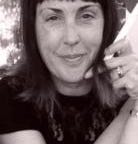I’m Pro-Woman — That Doesn’t Make Me Anti-Man
In 2018, I made a resolution to read only women authors.
I’ve done this before. It’s always part challenge, part remembrance string around my finger. The reminder? To be less lazy, to look beyond, to seek an alternative.
There was some gentle ribbing from those who know me well. For a few, my decision, one which affected exactly zero people outside my queue of one, aroused a bizarre apoplexy. Proof in the sexist pudding that clearly I must be anti-man.
Then there were more nuanced comments, less frothing and more fretting, comments which hinted at something deeper.
“But aren’t you afraid of what you’re missing out on?”
Missing out on?
My entire cultural and literary landscape is paved, stone by masculine stone, with male authors, most of them white. From Shakespeare and Byron to Franzen and Foster-Wallace. (If you ever want to see a head explode, go online and articulate why you think Jonathan Franzen or David Foster-Wallace are over-rated.) Anything outside that revered canon, barring classes purposely structured around female literature, was actively sought by me: with the shiny exception of one outstanding high school English teacher who introduced me to Charlotte Perkins Gilman and Joyce Carol Oates’s Where are you going, Where have you been?
Where have I been? Reading men for most of my life.
In four decades of reading I have, at times, struggled to find myself or the things that matter to me in the stories of men. Oh, I have marveled over the beauty of a Marquez sentence. I have smirked at the brutal wit of Christopher Moore. I have enjoyed, recommended, read and re-read male authors who have inspired, who have sparked joy, who have made me weep with the beauty of sentence construction and tales so seamlessly and intricately woven they felt like silk on my cheek.
But I have also had to squeeze and squint to imagine myself in those worlds. Reading women — the brilliance of Atwood, the sharp social commentary of Gillian Flynn, the heartbreaking intersectionality of Adiche, the life-affirming rage of Audre Lord, in those words I have found someone who looks, smells, and tastes…like me. Without having to squint.
My preference for, or even my conscious decision to seek out women authors does not make me anti-man. It just means that I’ve chosen to dig below the surface to find something more deeply connective.
Of course being pro-woman translates beyond that one decision. It spills over into political aspirations and the desire for a woman president, to see more diverse leadership across the board. My seeking out and supporting women stems, at its most basic, from a desire to to see myself. In art galleries, in movies, in politics, in literature, in boardrooms, in technology, in life itself.
We are so immune to the presence of men, of males, in every nook and cranny of our culture we don’t even notice them. They loom so large, so all-encompassing, we hardly give them a second-glance.
You could be forgiven for thinking that women really don’t exist at all, or that when we do appear, we are mere props. Not even a mirror posed for reflection. More like a lampshade. Just there.
To find the female gaze, in art, in literature, in life, we have to dig. We have to scratch and sometimes claw below the surface. We have to make active choices, not just passive ones. All of that is necessary if we want to see the other side.
(Why did the feminist cross the road? Duh. To get to the other side.)
A year, or a lifetime spent doing that digging, a feminist archeologist of sorts, is not missing out. It’s adding TO.
And perhaps this is the most patriarchal construct of it all — the idea that seeking out the feminine, for ourselves, yes, but also to add ballast to the other side of the scale, is made to be about men.
Guys? It’s not about you.
Pro-woman means just that. It means I find comfort, solace, beauty and grace in the feminine. It means I want to uplift the stories of women (I call them hearth stories, stories told between tea leaves and cups of coffee) so that there is balance. So that when I walk into a museum I am not, as I was recently, stuck by the fact that each gallery housed at least one female artist.
Be honest, when is the last time you walked into a world-class museum and thought “Wow! Look at this representation, every gallery has a male artist!”.
I’m betting never.
My pro-woman platform doesn’t take away from men. It doesn’t take away from their achievements. It doesn’t mean the art or literature they’ve created is not brilliant and worthy in its own way. It just means there are empty spaces around them that are missing something important.
Something I don’t have to squint so hard to find myself in.
